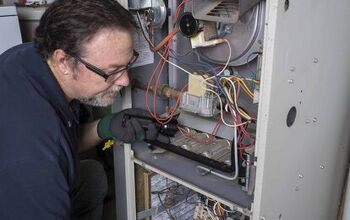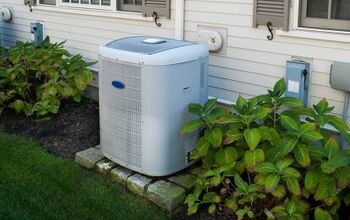House Settling Vs. Foundation Problems (Here Are The Differences)

Owning and maintaining a home can be a challenge, especially if your structure is old. Issues with your foundation can even prevent you from buying or selling the house of your dreams. So, how do you tell the difference between a house settling and foundation problems? Here’s what you need to know.
There’s a big difference between a faulty foundation and regular structural settling. Foundations generally settle for about two years after you built a house. But foundation problems cause rapid or continual settling that may damage the structural integrity.
Do You Need Concrete Foundation Repair Services?
Get free, zero-commitment quotes from pro contractors near you.

How To Tell the Difference Between a House Settling and Foundation Problems
Proper maintenance of your property requires some knowledge about typical construction elements. That’s because no two houses are the same. So, your home may age or handle damage differently than someone else’s.
Then, you must examine certain structural aspects to determine the cause of your problem. While natural settling isn’t anything to worry about, foundation issues can compromise your safety. And here’s what you can consider in the meantime:
#1. All Buildings Will Settle a Few Inches
Although some buildings only sink into the ground a couple of centimeters, others may settle a few inches. It all depends on what type of soil is beneath your home. If it rests on unpacked dirt or sand, the structure might sink even more than expected.
TIP: You can hire professionals to build up the ground around your house.
#2. Sunken Foundations Can Form Cracks
Foundations that are sinking or in need of repair will show that with cracks, bulges, gaps, and holes. Regular settling doesn’t cause that. If you find any of those signs on your walls, floors, doorways, or windows, there’s likely a problem with your foundation.
TIP: Pay close attention to door jambs, window wells, and cabinet doors for signs of trouble.
#3. Foundation Problems May Be Caused By Moisture
Sometimes, the dirt underneath our homes is too moist to support a massive building. That’s because not every place in the world has the same climate. So, your foundation could be on the brink of deterioration without you even knowing it.
TIP: A home inspector can come look at your structure to determine its condition.
An early diagnosis is the best way to prevent costly repairs. And it’s harder to fix something when it needs completely replaced. Thus, you should probably get to work as soon as you spot an issue.
When Should I Worry About My House Settling?
There are many signals that you should pay attention to when considering your home. These signs can help you prevent expensive transactions and fix problems before they get out of hand. Rule number one: look for horizontal cracks, big or small.
Horizontal cracks are indicative of abnormal settling. However, vertical cracks can be bad news too. So, there’s a guideline to help you determine how much is too much. If the gaps are larger than 1/16 of an inch, get ahold of a contractor.
How Much Foundation Settling Is Too Much?
Houses settle overtime on their own because of gravity. Therefore, most homes naturally sink into the ground between two and four inches before slowing or stopping. Meanwhile, some houses never stop settling at all because how or where they’re built.
If your structure settles more than an inch in a year, there could be a bigger problem afoot. It’s important not to ignore the signs. Broken, dipping, or unstable foundations can make an entire house come crumbling to the ground.
Do Houses Ever Stop Settling?
While most houses only settle a few inches over decades, others get all of their settling in within a couple of years. However, a few may never stop sinking into the ground. And houses like that are hazardous or sometimes even unsanitary.
Cracked, broken, or dilapidated foundations can cause gas and water leaks. They can interfere with your home’s electrical grid as well. So, make sure there’s enough money in the budget for fast fixes. That’s because your insurance company may or may not cover it.
What Does It Cost to Fix Foundation Problems?
The cost to fix a faulty foundation can vary widely depending on several factors. Plus, each contractor charges a different price for the same work. You could end up paying a larger amount than you have to. And that’s why getting several quotes is such a smart move.
Estimates for foundation repair range from about $1,000 to more than $10,000. The more serious your issues, the more money you can expect to pay. Minor cracks and problems may only cost a few hundred dollars. But either way, you’ll need the checkbook.
Expect to pay an average of around $5,000 for routine foundation work. Then, look for ways to save money with incentives, discounts, and preventative maintenance. Some companies even offer savings for referrals from new customers.
TIP: Try to do some of the work yourself to save even more cash.
What To Do If Your House Is Settling Too Much
Dealing with a home that’s settling too much can be stressful. There are structural issues to consider and the cost to fix it isn’t cheap. So, what do you do when your house sinks too far into the ground? Better yet, how do you fix a faulty foundation?
Here are the five steps you should follow:
- Determine Ground Level – This will help you measure how much your house has settled since you bought it.
- Look for the Signs – Watch for cracks, dips, holes, and leaks to find out where the problem starts and ends.
- Figure Out How to Stop It – Whether you build up the ground or rebuild the structure, do something soon.
- Calculate Your Budget – This figure can give you a rough idea of how much you can spend for repairs.
- Contact a Professional – Because fixing a foundation is so complex, it’s best to call in the pros.
For more information on how to tell the difference between a house settling and foundation problems, ask a structural engineer. You do not have to live inside an unsafe home. With the right help, you can enjoy a secure house with many years of life left in it.
How to Get Help with Foundation Problems
It’s crucial to find a professional for foundation repairs. That’s because your insurance company may require a licensed expert to do the work. If you choose the wrong service provider, you could lose coverage or get charged more than you should.
Contact your local contractor for help with your house. Make sure they have a valid license and liability insurance to work in your state. And it would help if they had knowledge about electrical, plumbing, and HVAC as well. Then, ask for references to make sure they know their stuff.
Also, try to look at before and after portfios if the company has them. Check out how they fixed other homes that are similar to yours. When you’re done, discuss pricing and see about any discounts or incentives. Save money and save your foundation at the same time.
Related Questions
Does My Insurance Cover Foundation Repair?
Whether or not your foundation repairs are covered by insurance depends on your policy. Most providers exclude foundation issues, which means policyholders must pay out of pocket. However, each case is different. So, contact your insurance company for detailed coverage information.
Can I Sell A House With Foundation Problems?
You can buy and sell houses with foundation problems in most states. However, some buyers and sellers may request pre-sale repairs on dilapidated properties. Expensice issues could increase or decrease the asking price. And in some cases, it may ultimately ruin the transaction.
What Happens If You Don’t Fix A Faulty Foundation?
If you don’t fix your foundation after you find problems, things could get out of hand. Neglected properties only get worse over time. So, costly issues today may become unaffordable fixes tomorrow. Plus, your structure will be unsafe in the meantime.
Can You Deduct Foundation Repairs From Your Taxes?
In most cases, you can deduct the cost of foundation repairs from your annual income taxes. That’s true if you’re a homeowner, but renters can take advantage too. If you rent an office space in the building and pay for the repairs, you could get reimbursed by the federal government.
Do You Need Concrete Foundation Repair Services?
Get free, zero-commitment quotes from pro contractors near you.

Anchor Your Home
Keep your foundation where it needs to be by measuring the ground level and watching for excessive sinking. If your home settles more than a one or two inches, you may have a serious foundation problem on your hands. So, get professional help as soon as possible.
Related Guides

Tiffany Nichols specializes in aesthetics, design, marketing, and manufacturing. She's a copywriter and editor for several home renovation companies in the U.S. and works alongside some of the biggest names in the industry. Her hobbies include architecture, art, mental health, and fashion.
More by Tiffany Nichols



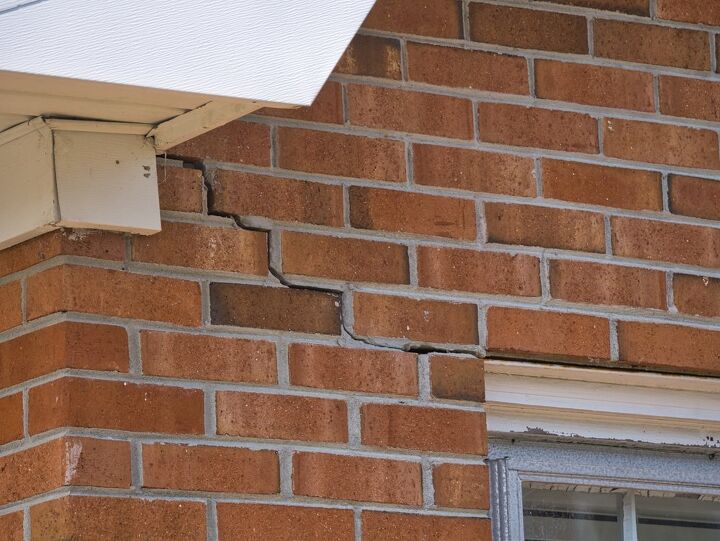










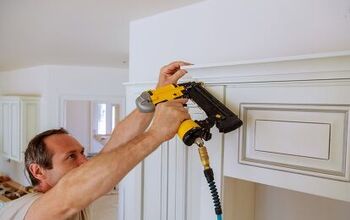




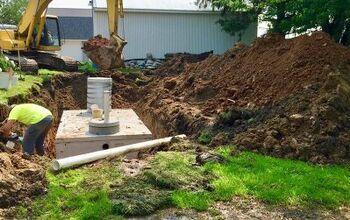
![Standard Dining Room Table Dimensions [for 4, 6, 8, 10 and 12 People]](https://cdn-fastly.upgradedhome.com/media/2023/07/31/9074335/standard-dining-room-table-dimensions-for-4-6-8-10-and-12-people.jpg?size=350x220)



